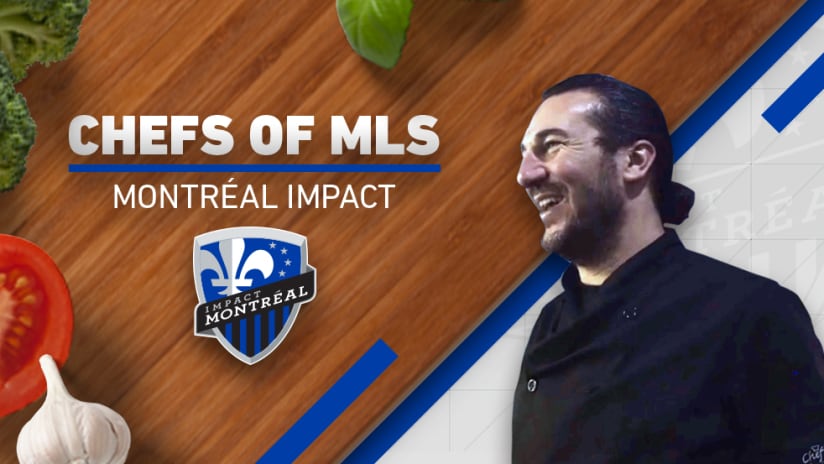MONTREAL – Nothing says home like mom’s home cooked meals.
But when 45 people travel together, 45 moms can’t be called upon. So at the Montreal Impact, enter the team’s private chef. His mission? To get each player to, yes, feel at home, but also to make sure their diet fits a high-level athlete’s needs.
MLSsoccer.com caught up with Mario Di Molfetta, chef and partner of the Montreal club, and asked him about his work, his philosophy and his traveling stories – good and bad. (Hint: Some players are pickier than others, and some CONCACAF Champions League travel in the recent past proved tricky, to say the least.)
MLSsoccer.com: How did you start working with the Impact?
Mario Di Molfetta: When they entered MLS, four years ago, they trained at Complexe sportif Marie-Victorin, where I am chef-owner of the Capucine restaurant. They used our services, and from that day on, I’ve replaced their old caterer. It’s been going great. When they tasted my food, they were instantly comfortable with me.
What do you do exactly?
I must first come up with varied menus, together with the fitness coach. I supervise food preparation for team meals. I ask players for what they like, and we change things as we go so that everyone’s happy. It’s a little complicated to make 45 people happy, but we’ve gotten great feedback.
The fitness coach has a hand in the menus. Where does your creative freedom stop, and where does his stop?
I show him the menu, and he’ll tell me that he doesn’t want such and such ingredients in pre-game or post-game meals. From there, I cook something that the players will enjoy, something good for them.
So you’ve gathered an understanding of the fitness coach’s choices?
We’re always trying certain things out. Maybe someone’s opinion changes. But it’s no big deal. There’s a base we work with, but we can’t always put the same food out. You change the presentation. In the end, it’s still chicken, but you can make it inviting in such or such way.
Are there some common special requests?
Some players are pickier. Others don’t eat pork. Europeans are particularly wary of what they eat. Their diet is strict – pasta before the game, avoid certain meats. Otherwise, they’re not picky. After a month of eating our food, the players see the difference and enjoy it.
What’s your workload with the team?
This year, we’re planning four or five trips, mostly in cities where the food isn’t up to the standards. I get there a day early and get my tomato sauce ready, my soups ready, my menu ready for the fitness coach to approve during the trip. Most of all, they bring me around because, in hotels, food is different, unlike what we eat at home. It’s not necessarily healthy. They add sugar, all sorts of things to enhance taste, but it’s quite calorific. They use faster methods, like powdered stock instead of an actual stock. It makes all the difference in the world, even digestion-wise.
Have you ever gotten into arguments to have it your way in a hotel kitchen?
The first hours are the most difficult. But when they understand that my job isn’t to show them how it’s done but simply to work according to different methods, it works out okay. I understand how a chef can feel when another chef enters their kitchen. But I’m not there to steal their job, only to make sure that the players get quality food.
Last year, you traveled a lot for CONCACAF Champions League. How was that?
The worst experience was Pachuca. Mexico City was good. Costa Rica was fantastic. But in Pachuca, we were staying in the only hotel that didn’t belong to our opponents’ parent company. I was worried about food safety. I was there with one of my colleagues, and our job was to make sure that the food wasn’t spoiled. They would leave all sorts of things at room temperature when they should have been in the refrigerator.
More than anything, I had to make sure that no one fell ill. We were there for four days and, fortunately, no one did. It was tough. Those conditions aren’t acceptable in any kitchen, anywhere. I didn’t feel like cooking anymore.













